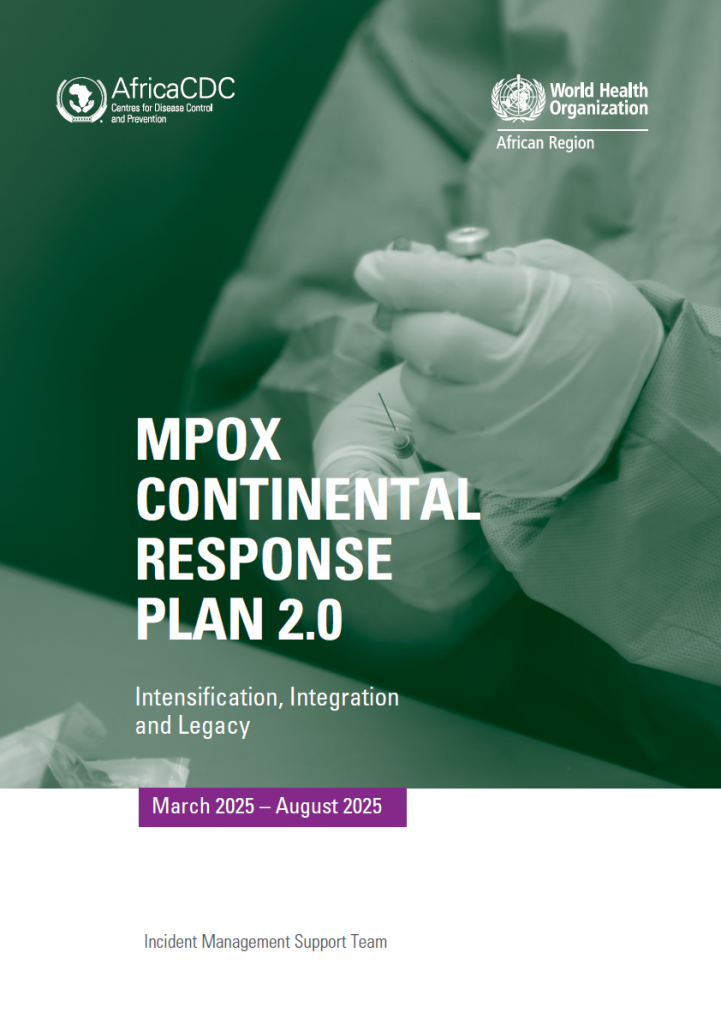Executive Summary
On August 13, 2024, the Africa CDC declared mpox a Public Health Emergency of Continental Security (PHECS). The following day, the WHO declared it a Public Health Emergency of International Concern (PHEIC). Following these declarations, a joint continental Mpox Preparedness and Response Plan was developed and implemented from September 2024 to February 2025, under the coordination of a continental Incident Management Support Team (IMST), co-led by Africa CDC and WHO, in close collaboration with global partners. This six-month response plan was based on the “4-One” principle of one team, one plan, one budget, and one monitoring and evaluation framework.
Despite the significant achievements such as streamlined coordination and leadership of mpox response, strengthened mpox surveillance systems, increased testing capacity, implementation of the RCCE activities, administration of mpox vaccines and enhanced case management during the first six months of the response, mpox continues to pose a public health challenge in Africa, highlighting the need to maintain a structured, coordinated, and sustainable response. Out of the 22 countries affected by end of February 2025, seven are in control phase and 15 are in active phase of which, three in the active phase are observing a declining trend (Burundi, Rwanda and Central Africa Republic). However, the increasing trend in Uganda and Sierra Leone remains concerning. In addition, the worsened security situation in DRC, further complicates the mpox response efforts. Cognizant of the mpox epidemiologic situation and recent changes in global health and security dynamics, the third International Health Regulations (2005) (IHR) Emergency Committee and the fourth Emergency Consultative Group (ECG) meetings convened on 25th and 26th February 2025 respectively , unanimously recommended the extension of the existing declarations for another six months and issued updated recommendations to boost response coordination, surveillance, laboratory testing, vaccination, community protection, case management and research
efforts.
This mpox Continental Response and Legacy Plan 2.0 for Africa will cover the period from March to August 2025 and serve as a roadmap to finish the response phase and transition it to routine programs by strengthening the health system’s resilience as a legacy for future public health emergencies.
The mpox Response and Legacy Plan 2.0 outlines essential priorities to stop outbreaks of human-to-human transmission of mpox, emphasizing improved (1) coordination and leadership, (2) risk communication and community engagement, (3) surveillance, (4)
laboratory, (5) case management, (6), infection prevention and control, (7) vaccination, (8) research and innovation, (9) operations support and logistics, (10) continuity of essential healthcare services. Among these 10 pillars, the plan emphasizes on acceleration of vaccination, decentralization of diagnostic capacities to increasing of mpox laboratory testing, integrated community package of mpox interventions, including active case finding, contact monitoring, IPC promotion and RCCE, unified database linking surveillance, laboratory testing, case management and vaccination, as well as strengthening the resilience of national health systems.
